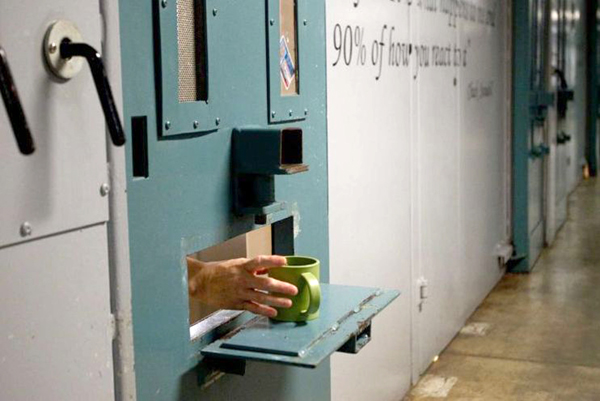- La Feria Community Holds Succesful Business Mixer Event
- Little Nashville to Take Place in Downtown Mercedes
- Lions Basketball Captures District Gold
- La Feria ISD Students Compete in Regional Chess Tournament
- Lions End First Half of 32-4A on a High Note
- La Feria ISD Held Another Successful Parent Conference
- Strong Appearance for Lions at Hidalgo Power Meet
- LFECHS Students Get to Meet Local Actress
- Students Participate in Marine Biology Camp
- Two LFECHS Students Qualify for All-State Band
Study: Solitary Confinement on Texas Death Row is Torture
- Updated: May 5, 2017

People on death row in Texas spend up to 23 hours a day in solitary confinement. A new report calls that torture and a violation of human rights. Photo: Solitary Watch
by Mark Richardson
HUNTSVILLE, Texas – The Texas prison system’s policy of housing all people on death row in solitary confinement is a form of torture and a violation of human rights, according to a new study.
The report from the University of Texas School of Law, finds that the state houses a person awaiting execution in an eight-by-12-foot cell for 23 hours a day – usually for years – while appeals move slowly through the court system.
Ariel Dulitzky, director of UT Law’s Human Rights Center, said that when people are physically and emotionally isolated, it takes a heavy toll.
“Any person who is kept in solitary confinement for more than 15 days starts to suffer mental and psychological effects that cannot be reversed,” she said, “and that fits the definition of torture.”
The study said isolation should not be used unless the person poses a danger, and never for those who have mental illnesses. Dulitzky said Texas falls far short of the standards in international treaties for housing people with death sentences. The Texas Department of Criminal Justice responded to the study, saying it “house(s) death-row offenders appropriately.”
For the study, the authors sent questionnaires to all former death-row inmates whose sentences had been commuted, although they were not allowed to contact anyone currently on death row. Dulitzky said many of the respondents reported they had been deprived of basic needs – such as outdoor exercise, human contact and adequate health care.
“And it’s not to the state to start torturing people as a way of punishing for their crimes. The punishment for their crime is, in this case, capital punishment, but it’s not the torture that Texas is exercising on these inmates.”
Texas has executed 475 prisoners since the death penalty was reinstated in 1976 – by far the most of any state, according to the Death Penalty Information Center. By legislative mandate, Texas keeps all people on death row in solitary confinement. With appeals, their prison stays average more than 14 years, but can be as long as 25 years.
The report is online at law.utexas.edu.


